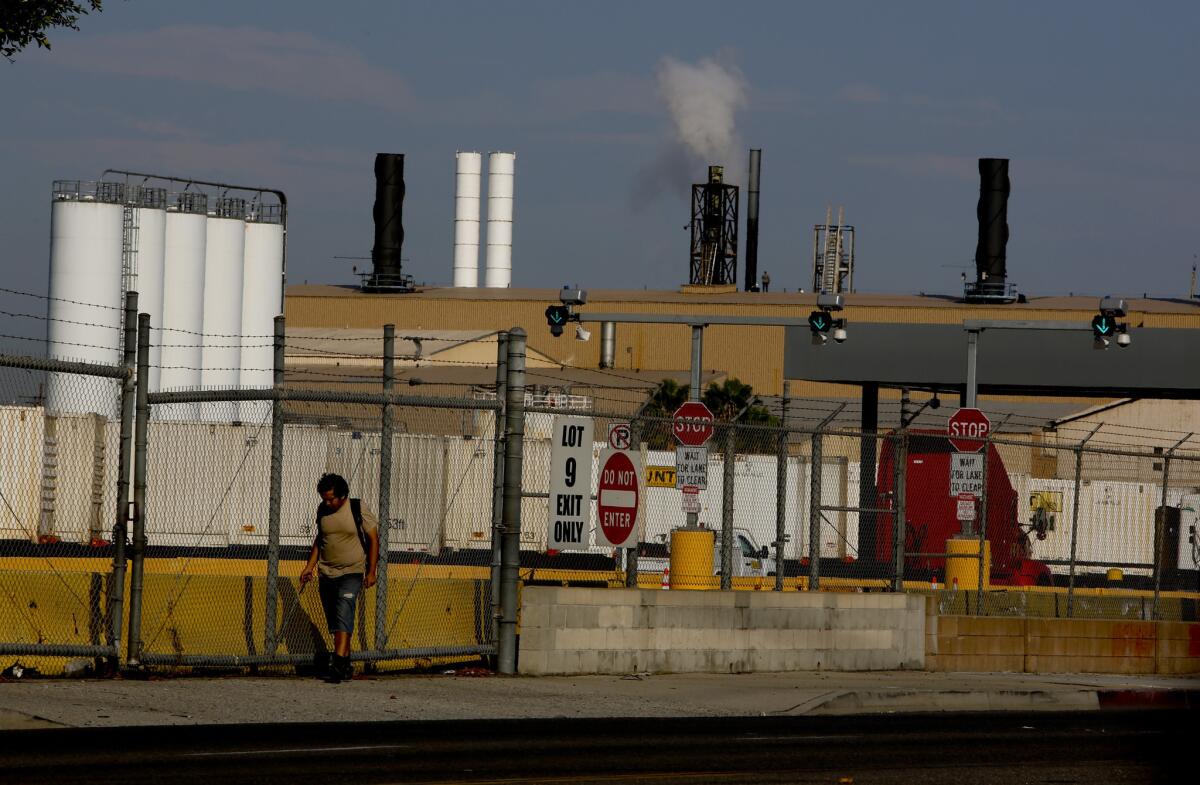Exide, already under scrutiny for emissions, leaks excessive lead

- Share via
Air-quality regulators have ordered an embattled Vernon battery recycler to cut production after an air monitor near the facility revealed Exide Technologies’ lead emissions have exceeded health standards over a 30-day period.
The excessive lead emissions occurred even as elected officials and community members across southeast Los Angeles have been calling for the plant’s closure amid an outcry over high arsenic emissions.
Last week, in an unprecedented move, state and county officials unveiled a plan to make blood tests available to a quarter of a million people who may have been affected by the emissions.
The news of the latest infraction of air quality rules stunned local activists and officials.
“Here’s my reaction: Oh my God,” said Msgr. John Moretta of Resurrection Catholic Church in Boyle Heights, where parishioners have expressed health concerns about the plant for years and have called for its permanent shutdown.
“After all the guarantees the community was given, now this?” Moretta said. “It’s just one thing after another. Maybe this is a sign that the community is correct and it’s time to close it.”
Exide officials could not be reached for comment. Air district officials said Exide at first disputed that the high lead reading was a result of its operations, but then agreed to cut production.
Community concern about Exide has been mounting since spring, when The Times reported that the Southern California Air Quality Management District had found elevated arsenic emissions from the plant increased the cancer risk for more than 110,000 people.
The plant has also been repeatedly cited by the air district and the state Department of Toxic Substances Control for discharging potentially harmful quantities of lead.
After the air district first revealed the elevated cancer risk, officials from the state toxic-control department moved to temporarily suspend plant operations. But Exide appealed in Los Angeles County Superior Court, arguing that the plant did not pose “an imminent and substantial” danger to the public. A judge sided with the company, and it resumed operations.
ALSO:
Skyscraper site in Hollywood may sit on active fault, state says
Opponents of Millennium Hollywood skyscrapers sue developer, city
Developers of Hollywood skyscraper project agree to dig on property
Twitter: @latimesjessicag
More to Read
Sign up for Essential California
The most important California stories and recommendations in your inbox every morning.
You may occasionally receive promotional content from the Los Angeles Times.











